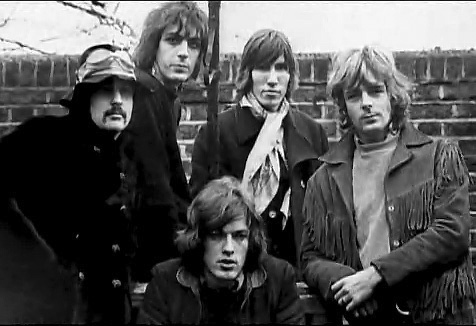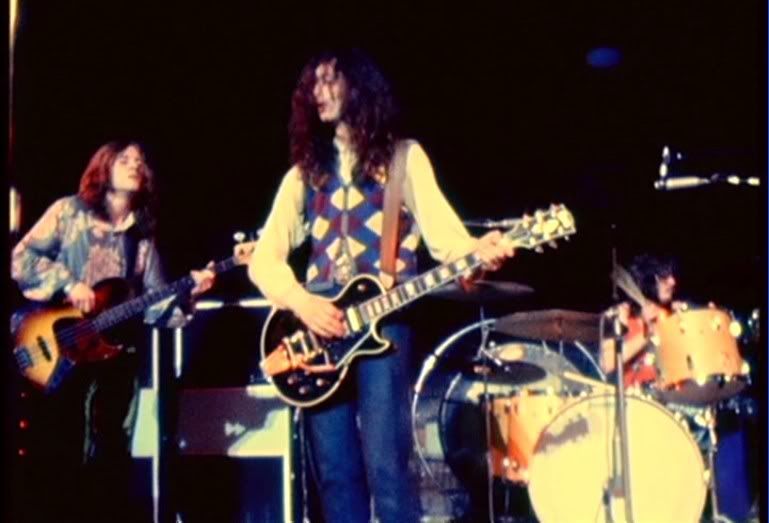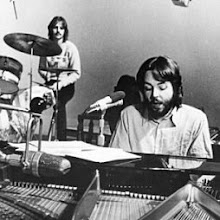Well, you want a Revolution? There are quite a few to pick from!
The Beatles have been in headlines recently after the discovery of the complete Take 20 (RM 1) of "Revolution 1." This track, nearly eleven minutes long, is the missing link between "Revolution 1" and "Revolution 9." It had been unbootlegged until late last year. Rumor has it that it leaked whilst tapes being used to remaster the "White Album" were being moved about. Only two tapes of this recording were in the vaults, so it had long been sought after, but impossible to find.
But it is not the earliest version we have available. There is John's Esher demo, which has been bootlegged, part of a collection of homemade recordings the Beatles made in anticipation of the "White Album" (with titles appearing in final form on said album, plus "Abbey Road," and two George songs only first relased in his solo years in the seventies and eighties!) This version of "Revolution" is John's original, slow arrangement, but it is not as slow as the album version. Instead, it has a very upbeat, singalong feel, more akin to, say, "Give Peace A Chance." John's guitar is the only instrument, the song otherwise carried by his lead vocals, some backing vocals, and handclaps. It has a very bare, live feel (like many Esher demos) and has a sound that almost seems like a sixties cliche, the type of hipy peace numbers. Except that John has more bite.
John was happy with keeping a slower arrangement for "Revolution," and kept it slow when the Beatles brought it to the studio, their first session for the "White Album." The Beatles recorded what would be retitled "Revolution 1," but John's original idea was to give it a very experimental coda, with tape loops and the like (John had recorded the infamous "Two Virgins" only a week or so prior.) After twenty takes, the Beatles ended up with the now popular "Revolution 1" Take 20 RM 1 (which means Mono Remix number 1). The cut runs for about 10:46. At first, it sounds just like the album version (minus many overdubs). But as it runs past the album version, things get a little crazy. John's "Alright" 's start to have effects on them, and a tape loop of noise keeps going through the sound image. Behind John, backing vocals saying "Mama, Dada" can be heard, something not in the final version. Finally, the song wraps up with a recording we all know from "Revolution 9," of Yoko talking with John and wierd radio noises and some tinkering on a piano. The song ends there, with John and Yoko heard commenting on it before the tape cuts. The song would be edited later on, and the last half taken out. John's experimental coda would become its' own entity, "Revolution 9."
We also have bootleg recordings of the Beatles overdubbing Take 20, adding electric guitar, organ, more drums, and such. The tapes we have are from Yoko, who was recording a sort of audio diary. She delves into many topics, from her sex life with John, to her relationsip with the band, and she seems to be in a very stream of conscious sort of recitation of emotions and events. Behind her, the Beatles can be heard working on overdubs and jamming, making for a great background atmosphere (although I imagine everyone, including myself, is not listening just for Yoko's part). The jams are pretty light, with a nice organ giving an almost ethereal feel. With Yoko talking over it, it feels less like a recording session, and more like the soundtrack to some strange psychedelic movie.
"Revolution 1" was finished first, and made part of the "White Album"s tracklisting, but the other Beatles wanted John to make it into a faster number, and so the electric single version was recorded, and wound up being the first released. With the heavy guitars, and John's primal scream, this version took on a more forceful stance, a complete turn around from the lazy Sunday performance of "Revolution 1." Session man Nicky Hopkins played keyboard, one of the few times the band would be augmented by an outside musician. It was the B-side of "Hey Jude," and both the A & B recieved much airplay (though Paul would be the one to have a #1, fueling a little jealousy in John, already none to happy to have had his two songs, "Across The Universe" and "Hey Bulldog" left out of the Beatles ealry 1968 single, Paul's "Lady Madonna," and also not thrilled to have "I Am The Walrus" relegated to the B-side to give Paul's "Hello Goodbye" top billing.)
After their last concert at Candlestick Park in 1966, the Beatles had not appeared together on stage. In 1967, they gave only one live performance, "All You Need Is Love," for the TV broadcast. In 1968, they would again go on TV live, sort of. For a special segment on the David Frost Show, the Beatles would do "Revolution." It would not be a new recording, but rather new vocals on top of the backing track from the single. Paul would do the opening scream, and while John sings the lead, Paul and George would throw in some "sho-be-do-wa's" from "Revolution 1," reconciling the two versions.
I had first heard "Revolution" in the car with my Mother, not long after the Beatles "1" CD came out. It was one of the first songs I heard by them not on the CD, and I was intrigued by it (and wholly confused when "Revolution 1" would come on, and I would wonder where the riff went!)
"Revolution" was the birth of John making his lyrics politically aware. It says very little specifically (save for Chairman Mao) but it has the sort of urgency that pervaded the late sixties, and the agression foreshadowing the political activism John would be a part of in the seventies. John still wasn't sure where he stood, not sure whether to say "in" or "out" after "You say you want destuction/ well don't you know that you can count me...", (saying both in "Revolution 1".) But he knew he had to say something. And so he did.
Thursday, March 19, 2009
Subscribe to:
Comments (Atom)

















